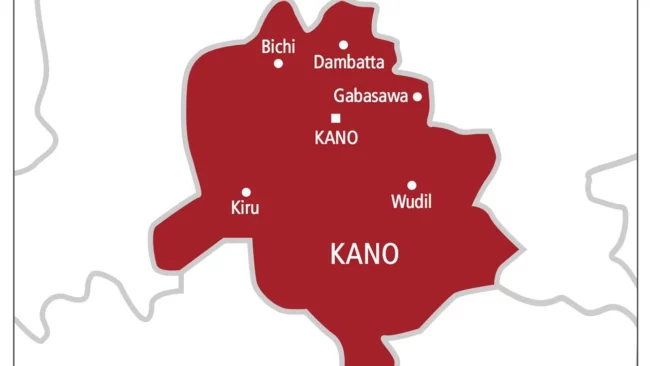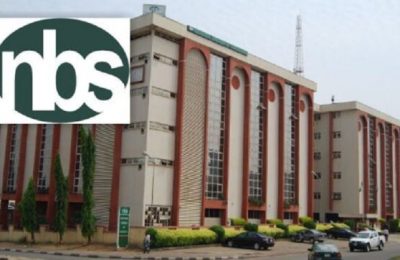About 60 percent of the over 20 million people in Kano State engage in agricultural activities, making the state key in bridging the food deficit gap experienced in the country.
In Kano state, where the majority of the farmers are smallholder farmers, the Kano State Agro-Pastoral Development Project (KSADP), and the Sasakawa Africa Association (SAA) are implementing projects across the 44 local government in the state which is aimed at upscaling food production and improving livelihoods.
At the just concluded High-Level Workshop on Agricultural Transformation and What Works organized by the Kano State Government and SAA, there was a tour around some of the projects being implemented by KSADP/SAA with funding from the Islamic Development Bank (IsDB) and Lives and Livelihood Funds.

In Gaya Local Government Area, KSADP/SAA engaged Extension Advisers to train farmers on good agronomic practices in the areas of post-harvest handlings, fertilizer application, crop spacing and how to use some technologies the project is promoting.
Musa Ibrahim, the Lead Extension Adviser told Nigerian Tribune that they are about three Extension Advisers who were trained in order to train other farmers at the grassroots.
“We are three Extension Advisers in Gaya Local Government, we have six Community-based Practice Farmers when we receive the training, we take it to the farmers in the community. We are training the farmers so that they will assist us train other farmers in the community. We train them on fertilizer application, post-harvest handling and other technologies.
“The Extension Advisers are provided with motorcycles, Tablets and monthly allowance. The farmers are really improving especially how they are multiplying the seeds, rice, maize, sorghum, millet, all the communities are now using improved seeds, we are training them on how they will adopt all the technologies, especially crop spacing, fertilizer application, control of weeds, insects, post-harvest handling, storing and they are adopting. We are also training them on how to go to the market”, Ibrahim noted.

Also in Kura Local government, Sadiq Hamman, Programme Officer, Nutrition Sensitive Agriculture at SAA, said the farmers engage a lot in rice production, especially parboiling on a small-scale basis.
“We are in Kura Local government. Kura is one of the local governments that is fully engaged in rice production, they do a lot of small-scale milling business. The whole value chain from production, processing to marketing, this is the area where you will see a lot of those activities going on”, he said.
Hamman said that the project provided a medium-scale rice parboiling center which is capable of parboiling 1.2 tons of rice per batch.
“Here is a medium-scale rice parboiling center, it has the capacity to parboil at least 1.2 tons of rice per batch. Basically, if you look at it in the rice value chain, parboiling is dominated by women in the northern part of the country. Looking at that opportunity, we realized that it is going to be good if we advance and do a lot to support women to be engaged in the business.
“We brought the women together so that they can increase their capacity and have access to the market. So, that is why we established this center for them where they can do all the parboiling activities and we put them through value addition.
“This cluster is established for two groups with 25 members each, so they come here together, do the parboiling and whatever they make, they share the profits among themselves.
Albert Taru, Programme Officer, Regenerative Agriculture at SAA while explaining their activities on a demonstration plot where farmers are trained also in Kura Local Government, said the aim is to assist farmers get a better yield and address some climatic issues.
“In Kura Demonstration Plot, it is a learning platform where we train farmers to understand the good agronomic practices and technologies that we are trying to promote. This is aimed at helping farmers to obtain better yield and address some of the issues around production as it is affected by climatic problems like dry spells and erratic weather conditions.
“We try to showcase certain technologies like the use of compost in production, nursery establishment, line transplanting among others, also the use of irrigation for rice production and better usage of chemicals.
“We also introduce them to improved and quality seeds because it is their productivity entirely that we are trying to improve and make them more competitive, market driven and have a better source of livelihood”, Taru explained
Moses Nongoatse, the Communication Officer of SAA while explaining the activities at the Community-Based Seed Multiplication Plot, Kura Garu Mallam, said the project in partnership with Value Seed established the plot in order to promote seed entrepreneurs and also to provide quality seeds for farmers in the community.
“This is a Community-Based seed multiplication plot in Kura Garu Mallam and it is owned by Value Seed, they are one of our seed partners. So, the idea is that we bring the seed companies into the communities to work directly with the producers. The seed multiplication system is an idea that is promoting seed entrepreneurs.
“The seed entrepreneurs’ task is to cultivate purely seed for multiplication purposes, so they work directly with the seed companies that we work with. The purpose is to ensure that the seeds meet the standard for certification by the National Agricultural Seed Council (NASC).
“When the seed entrepreneurs cultivate the seeds, it is lifted by seed companies, as the seeds are being multiplied, the farmers are also getting higher value because what they are cultivating here are not grains, that way, more seeds get into the community, farmers earn more money and then we achieve our aim of ensuring that farmers have access to quality seeds”, Nongoatse explained.
Furthermore, Albert Taru explained that the seed production plot also serves as a learning platform where farmers within the cluster learn how to grow maize and maize seeds.
According to him, this is also a model where the seed companies are involved to create linkages between the farmers and the seed companies whereby the farmers have access to improved seeds within the communities, while it also helps the seed companies to get better reach to the farmers and communities, thereby expanding their markets.
“As we speak, the farmers within this cluster are already working with these seed companies, the farmers have been absolved to be seed out-growers for the seed companies. We are already seeing sustainability as the linkage that we have already established”, Taru added.
The KSADP/SAA project is implemented in all parts of Kano State simultaneously, targeting rural farmers especially. The main purpose is to scale up food production, improve the livelihoods of farmers and contribute to national food production.
READ ALSO: JUST IN: Tinubu directs release of minors arraigned for #EndBadGovernance protests







